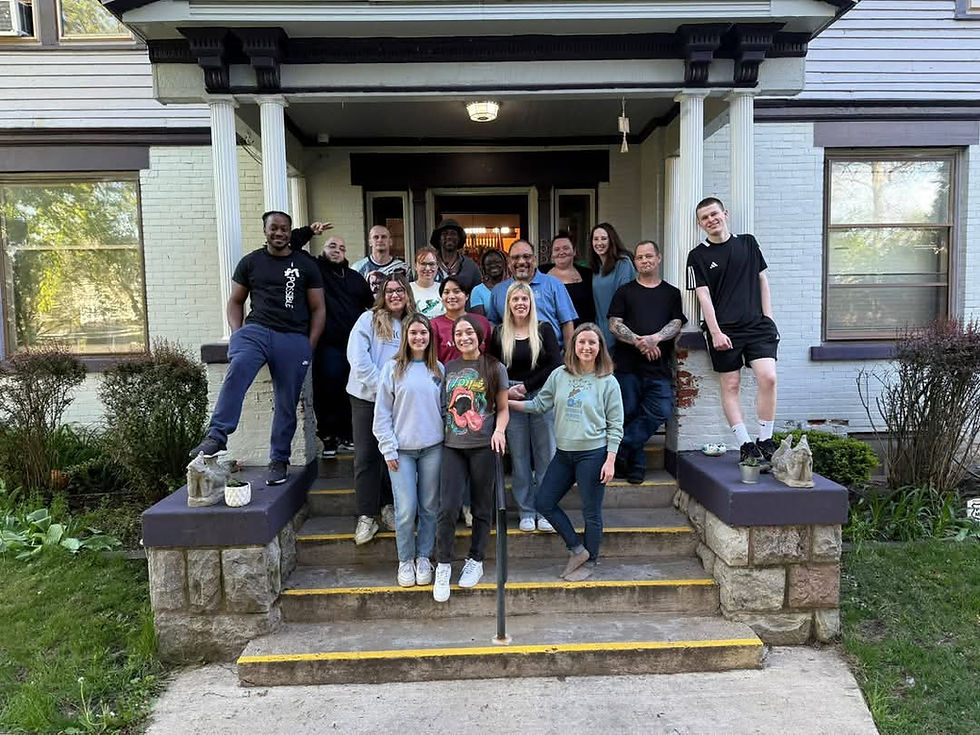Breaking the Myth of the “Perfect Reentry Story”
- ahuxhold
- Jul 9, 2025
- 2 min read
by Executive Director Andee Huxhold
We often hear about reentry stories in neat, packaged arcs: someone comes home, immediately finds work, reconnects with family, and lives happily ever after. These are the stories that get shared in headlines and fundraising videos — the stories that feel easy to celebrate.
But the truth is, there is no “perfect” reentry story.
Recently, one of our residents shared something that has stayed with me. He said that reentry looked nothing like he envisioned it would when he was inside. He went on to list all the things that were out of his control: family dynamics that didn’t magically heal, mental health challenges that reemerged in unexpected ways, the weight of stigma, the deep fatigue from constantly navigating a world that doesn’t always feel welcoming.
His honesty was a powerful reminder that reentry is not a straight line. It is a deeply personal, often messy journey that looks different for every single person.
For some, reconnecting with family is the hardest part. For others, it’s finding stable work, managing trauma, rebuilding trust, or simply learning to feel safe again. Progress is rarely linear. There are setbacks, pauses, and unexpected detours.
At Dismas House, we believe that these “imperfect” stories are the ones we should hold closest. They show us what real growth looks like: slow, layered, and deeply human.
Instead of measuring success only by employment or housing milestones, we celebrate the quieter, more personal victories too — the courage to ask for help, the first honest conversation with a loved one, the decision to start therapy, the choice to keep showing up even when it feels impossible.
Embracing the reality of nonlinear growth means letting go of the myth that there is one “right” way to come home. It means meeting each person where they are and walking alongside them as they define what success looks like for themselves.
Because reentry isn’t about perfection. It’s about possibility, dignity, and building a life that feels true — setbacks and all.


Comments